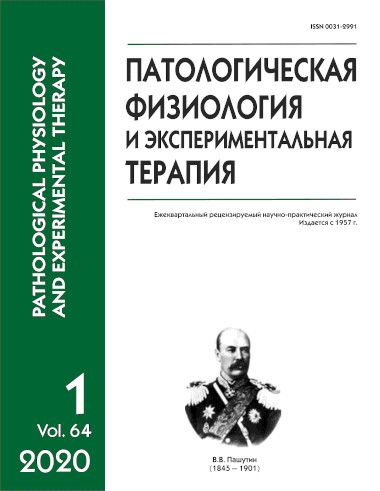Immunomodulating mechanisms of biological effect of thymosin 1α in arterial hypertension
Abstract
The aim of this work was to study effects of thymosin 1 alpha on intracellular signaling mechanisms, specifically, the state of terminal components of MAPK/SAPK and JAK/STAT signaling pathways in peripheral blood mononuclear leukocytes of patients with arterial hypertension. Methods. The level of phosphorylation of factors STAT5A, STAT6, ERK1/2, and p38 and the content of the nuclear transcription factor NF-κB were measured using the enzyme immunoassay. Relationship between the studied factors was assessed by the linear regression analysis. Results. The increase in serum Tα1 concentration was associated with activation of STAT5A and STAT6 as well as ERK and p38 protein kinases and the nuclear transcription factor NF-κB in mononuclear cells. A high concentration of Tα1 was associated with increased activity of the nuclear transcription factor NF-κB, STAT6, and ERK. In this process, the increased production of Tα1 was associated with increased activity of STAT6 and STAT5A as well as ERK and p38 protein kinases but with unchanged activity of NF-κB. Conclusion. At physiological concentrations (0.9‒2.85 pg/ml), Tα1 is an important immunomodulator that regulates activities of the MAPK SAPK and JAK/STAT signaling pathways, thereby changing responses of immunocompetent cells to signals of cytokines, growth factors, and hormones, including leptin, insulin, and somatotropin without a direct activating effect on cytokine production by immunocompetent cells. The results of the study suggested that Tα1 is an immunomodulator potentially capable of correcting respective immunometabolic disorders in patients with hypertension.






